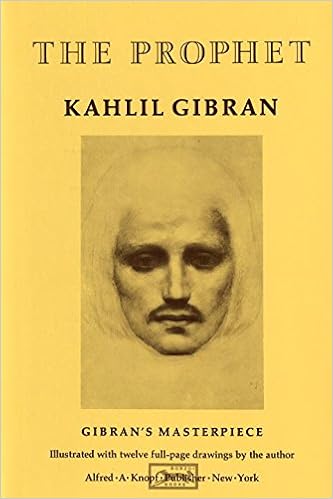
Kahlil Gibran
Poet · Painter · Philosopher
January 6, 1883 Besharri, Lebanon
April 10, 1931 NY City, USA.
Syrian Nationalism
Multifaith
"The Beatles, John F Kennedy and Indira Gandhi are among those who have been influenced by its words" -BBC News
The road to fame...
Born to Kahlil Saad Gibran and Kamileh Rahme, Gibran Kahlil Gibran was raised, along with his sisters Marianna and Sultana and his half-brother Boutros, in the bosom of a Lebanese Maronite Christian family. Around 1891, Kahlil Gibran’s father was arrested on charges of improperly administering the funds he collected. Following his release, and in the wake of economic crises befalling the family, Kamileh decided to emigrate with her children to America. In 1895 the family arrived in New York before continuing on to Boston. There, Kamileh and her children supported themselves with a small grocery store. Gibran’s teacher, Florence Pierce, placed the young man under the tutelage of the sybarite and photographer Fred Holland Day, who would become a dear friend and one of the greatest influences on the life of the future artist. Day introduced Gibran into Boston intellectual and bohemian circles. It was also owing to Day that Gibran became acquainted with the art of William Blake (1957-1827) and Eugène Carrière (1849-1906), who would later have an impact on his symbolist works. Around 1898, Gibran returned to Lebanon and studied under Youssef Haddad, his most important teacher. He returned to Boston on the death of Sultana, which was followed by the illnesses and subsequent deaths of Boutros and Kamileh. Through the mediation of Fred Holland Day, Gibran exhibited his first paintings in 1904, at the Harcourt Studios in Boston, where he met Mary Haskell, who would become his great friend, patroness, and companion for the rest of his life. The following year he published, in Arabic, his first book: Music.
Discover how The Prophet(1923) was created, in the full article...
Bestseller Books...

In Broken Wings (1912), Kahlil Gibran uncovers the glory and pain of young love. This loosely autobiographical story is in the tradition of Romeo and Juliet, but with Gibran's characteristic lush Oriental settings and images.
A young Kahlil is introduced to Faris Karama, a wealthy and good-hearted merchant of Beirut, and his daughter, Salma. Kahlil and Salma are deeply attracted to on another and continue to meet regularly, with the blessings of Faris Karama.
But a powerful priest, Father Ghalib, in order to gain access to the Karama fortune, demands that his son be allowed to marry Salma.

The Madman (1918), is thought-provoking and inspiring, the book is a collection of memorable, life-affirming parables and poems, many of them casting an ironic light on the beliefs, aspirations, and vanities of humankind —
and many reminiscent of the work of Tagore and Nietzsche, both of whom were strong influences on Gibran.
Among the 35 poems and parables in this volume are "How I Became a Madman," "The Two Hermits," "The Wise Dog," "The Good God and
the Evil God," "Night and the Madman," "The Three Ants," "When My Sorrow Was Born," "And When My Joy Was Born," and many more.

The Prophet (1923), is one of the most beloved classics of our time.
Is a collection of poetic essays that are philosophical, spiritual, and, above all, inspirational. Gibran’s musings are divided into twenty-eight chapters
covering such sprawling topics as love, marriage, children, giving, eating and drinking, work, joy and sorrow, housing, clothes, buying and selling, crime and punishment, laws, freedom, reason and passion, pain, self-knowledge, teaching,
friendship, talking, time, good and evil, prayer, pleasure, beauty, religion, and death.
Recognized paints...
Still inspiring...
The Prophet, by celebrated Lebanese author Kahlil Gibran, is among the most popular volumes of poetry ever written, selling over 100 million copies in forty languages since its publication in 1923. Gibran's timeless verses have been given enchanting new form in this painterly cinematic adventure about freedom and the power of human expression.
This breathtaking animated feature, produced and spearheaded by Salma Hayek, was an official selection at Cannes and made its North American premiere at Toronto International Film Festival. Written and directed by Roger Allers (The Lion King), the film intersperses Gibran's elegant poetry within stunning animated sequences by filmmakers Tomm Moore (The Secret of Kells, Song of the Sea), Nina Paley (Sita Sings the Blues), Bill Plympton (Guide Dog), and a host of award-winning animators from around the world. Read Critics





